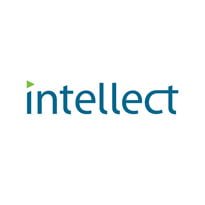NHS should ‘look to lastminute.com’
- 15 April 2013

Trade body Intellect has urged the NHS to learn from the private sector when it comes to building a new digital architecture to meet the ‘paperless’ challenge.
In a report published today, called ‘The NHS Information Evolution’, Intellect argues there are many systems that the NHS could look to adopt.
“Digitising straightforward transactions such as booking appointments, viewing test results and ordering prescriptions is more difficult than necessary,” it says. “Innovative solutions such as the ones we enjoy in our social life still remain some distance away.”
Yet, it asks: “Wouldn’t it be good if we could get a lastminute.com style of appointment service to fill the spare capacity across the NHS, use an Amazon-like service to have care packages delivered anywhere they are required, treat Choose and Book referrals the same way as hotels.com?”
Commenting on the report, Jon Lindberg, Intellect’s head of healthcare, said there was a need to adopt a different approach to information architecture.
“The underpinning principle behind this paper is that the UK is a digitally advanced nation, with over 52m of us accessing the Internet regularly and 70% of us searching for information and making transactions online,” he said.
“We have seen huge leaps forward in terms of digital services and products from other sectors. Wouldn’t it be great if the NHS could run its business in a similar way?”
The Intellect paper says that the current NHS operates in silos and very few people can access and make use of the information they need. It adds that this is the reason why the wider uses of digitial solutions are slow to take up in the health service.
“The technology industry believes there is an alternative approach to information technology in the health service. We believe that by metaphorically punching holes in the information silos we can have a horizontal, constantly flowing information system,” says the report.
“Data and resources will become available in real time, providing an opportunity to make the system more effective.”
Intellect makes eight key recommendations in its report, including opening up the N3 network to trusted suppliers in order to enable new services to be developed. It also calls for open APIs to be mandated in procurements, beginning with Choose and Book.
“Choose and Book, which is due for replacement, presents an ideal opportunity to create a platform on which value-added services can be delivered,” says the report.
The report concludes: “What is needed is a new model, an alternative way to think about patient data, and to borrow some of the concepts that have been successful in other markets.”
EHI is running The Big EPR Debate to give readers a chance to shape the future of electronic records and a paperless NHS. What should NHS England’s guidance cover? What is an EPR? What is essential and what can be left for later? What should the next steps be. Join the debate.




